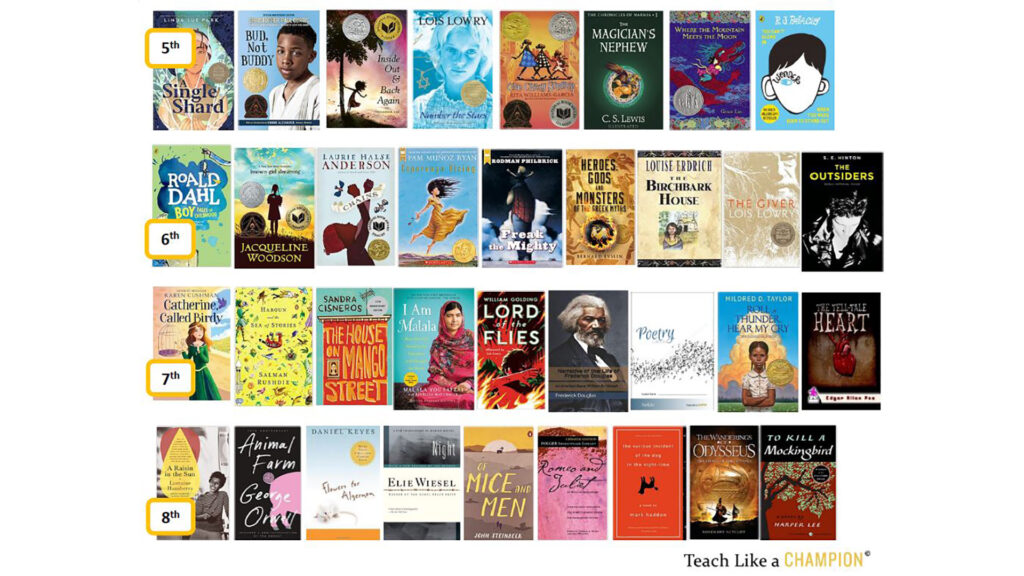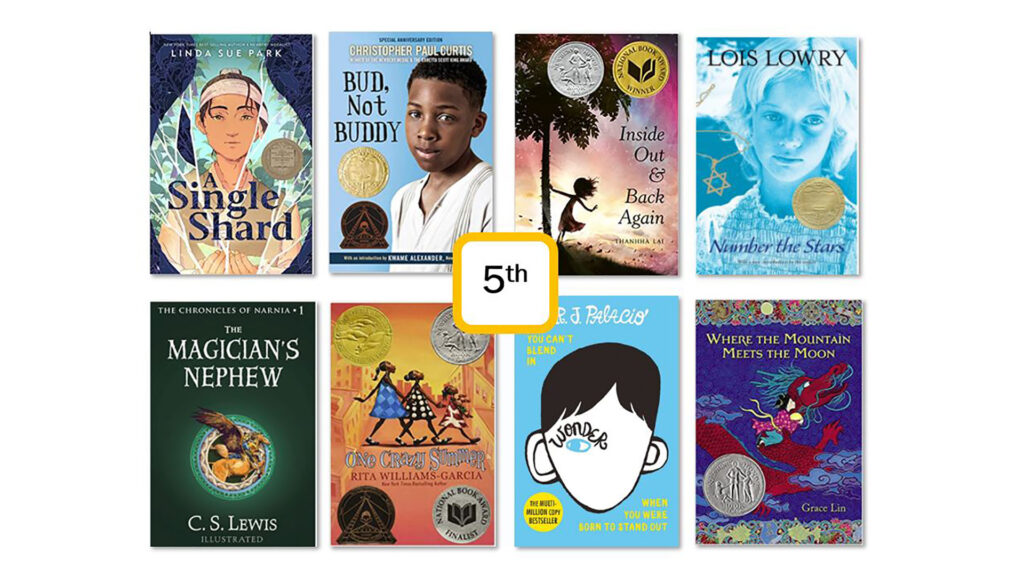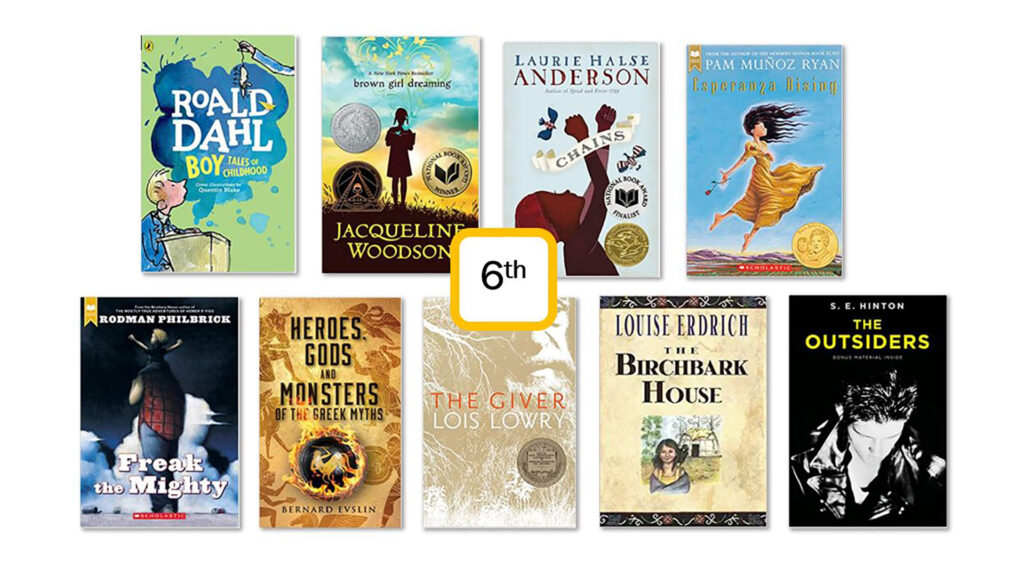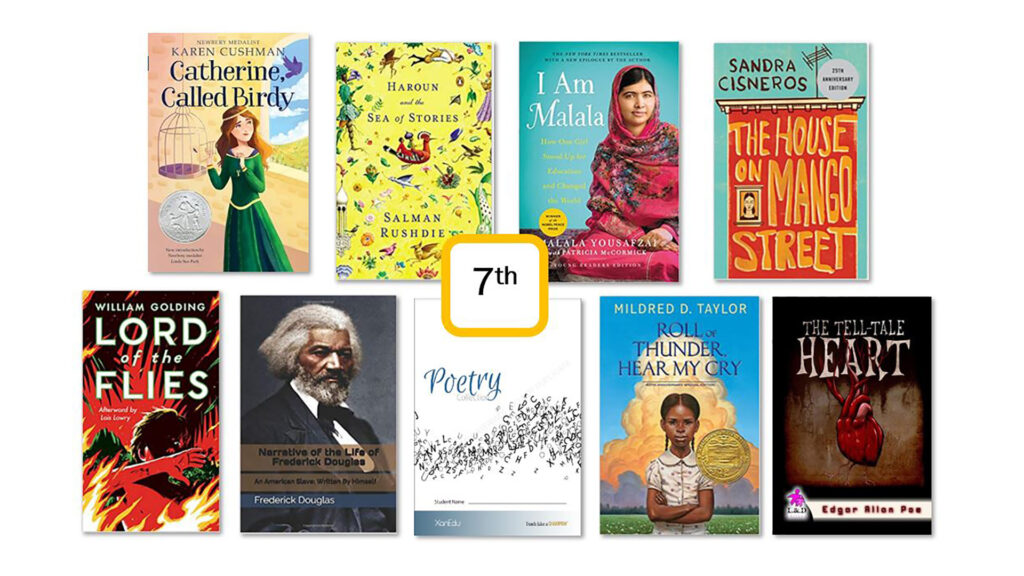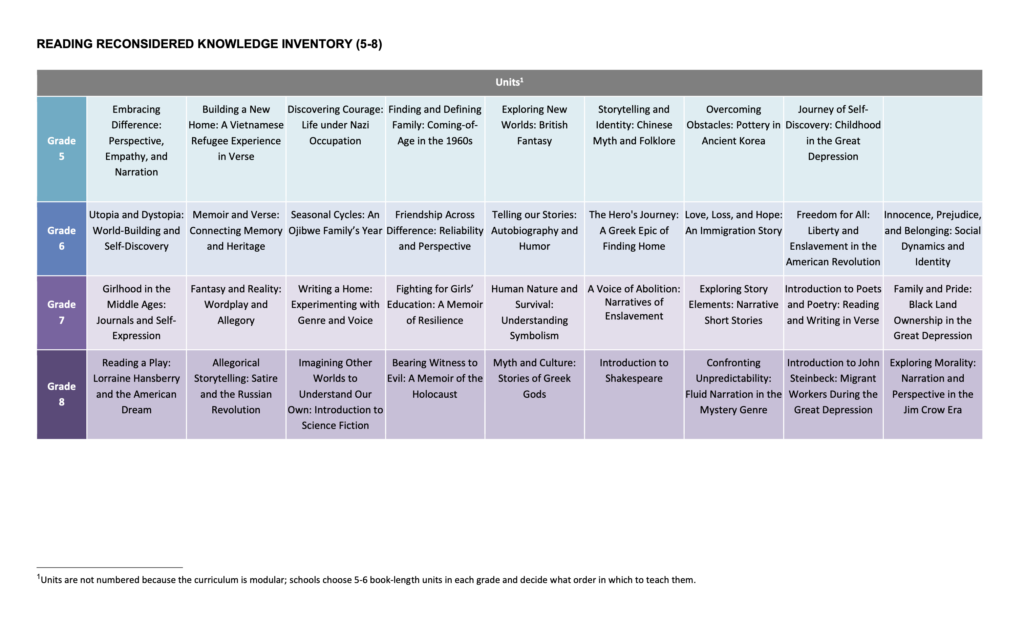Reading Reconsidered (5-8)
Reading Reconsidered is rooted in full-length texts of literary merit, cultural significance, and rich, complex content. Historical fiction predominates throughout the grades, providing frequent opportunities to build knowledge of the social and political world through novels, memoirs, short stories, and poetry. Students study how life events influence and shape people. For example, 6th graders study both poetry as a form and the events of the Civil Rights era through Jacqueline Woodson’s Brown Girl Dreaming. Lesson objectives are text-driven; they focus on what students should understand and learn from texts. Reading Reconsidered also offers flexibility: teachers can choose from multiple book-length units within a grade and decide the order in which to teach the selected books.
Rich, rigorous, diverse texts:
How Reading Reconsidered designs for:
Deep knowledge-building
The curriculum is designed around an unapologetic love of books. Full-length core texts form the heart of each unit. Each lesson includes multiple interactions with key portions of texts, whether whole class, individually, or peer-to-peer. Reading Reconsidered has a modular structure designed for students to go deep with each topic. A Knowledge Organizer accompanies each unit, containing a brief synopsis of high-priority knowledge in the book and related content. Examples include a discussion of historical contexts, event timelines, notable quotations, and literary terms. The goal of the Knowledge Organizer is to support the “encoding” of critical knowledge into students’ long-term memory through frequent, fast, and energetic retrieval exercises that enable students to better engage in knowledge-rich discussions and literary analyses throughout the six-week unit.
Developing both depth and breadth of vocabulary are priorities. A daily close examination of several high-value words is accomplished through quick yet substantive dives into their nuanced meanings. Vocabulary study also reinforces the meanings of words encountered through shared daily readings.
Systematic foundational skills and fluency
Reading Reconsidered begins in grade 5 and, therefore, does not offer an early reading program. However, fluency practice with grade-level complex text, called FASE, is routinely suggested. FASE—Fluent, Accountable, Social, Expressive—reading is a system for shared read-alouds between students and teachers, engineered to allow for engaged oral reading and opportunities to swiftly assist students with decoding or fluency errors. Several units also feature fluency packets aligned to lessons for students who require additional reading support.
Equitable access to challenging texts
Instruction is always text-centered, not skill-driven—a standout strength. As the class moves carefully through a unit’s core text a few pages at a time, the focus remains on building a shared understanding of what is essential to learn from the demanding texts and the authors’ ideas. Teachers read aloud from these texts (or use FASE) daily to provide all students access. Lessons require that multiple skills—reading, writing, speaking, and listening—be addressed together and synergistically. Writing is thoughtfully scaffolded, with time spent teaching students to use specific words, phrases, and grammatical structures and faithfully supporting them in outlining, drafting, and revising summative writings that attend to the text topics.
Topics of study
Learning and exhibiting deep knowledge
Access Reading Reconsidered
Reading Reconsidered was developed by Teach Like A Champion, which offers a digital version of the curriculum. Novel-based units, implementation resources, and professional learning are available to sample and purchase on the Reading Reconsidered website.
